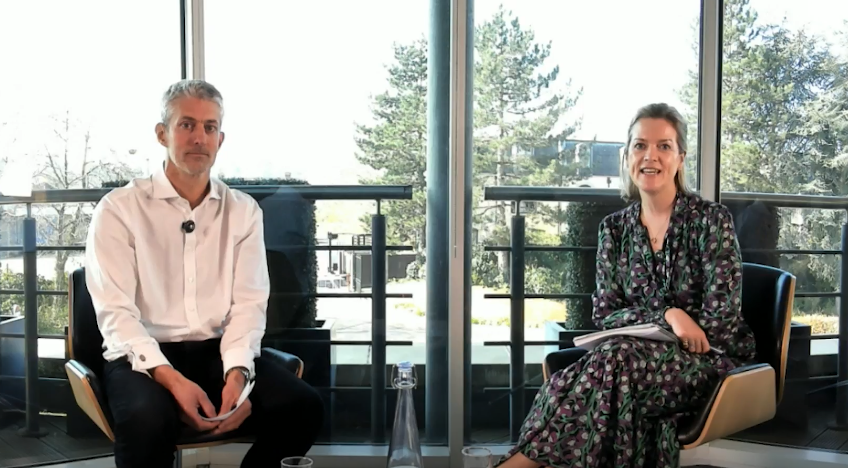
valuation opportunities Where you’ll find the cheapest and most expensive stock markets in the world
Find out what regional stock markets look cheap or expensive and learn from our experts about investing opportunities and risks around the world.

To navigate potential political challenges in Europe, active investing could be key
DAX index was muted as far-right win state elections in Thuringia and Saxony
Active investing was important after Macron announced French snap elections
For many, September marks a return to school, but for Europe, it also signified a renewed focus on political developments, with Germany making headlines. The states of Thuringia, Saxony and Brandenburg held regional parliamentary elections in which the Alternative for Germany (AfD), the far-right party, gained considerable momentum.
In Thuringia, the AfD's led the polls with 33% share of the vote, reflecting a significant increase in its influence. In Saxony, there was also substantial support for the AfD party as they come in second with 31%. In Brandenburg, it was a similar picture with the AfD winning 29% of the vote, narrowly behind Scholz’s SPD party (note that Brandeburg is Scholz’s home State and has long been very supportive of the SPD party).
Despite these results and the potential to cause alarm, it is important to view them within a broader context. These results were held in only three of Germany’s 16 states, and Thuringia and Saxony both have relatively small populations.
Furthermore, while they may take a while to form, we expect regional coalitions to come together to prevent the AfD from holding governing positions, likely comprising the CDU, SPD, and both the Greens and the Left. It is likely that these relatively more centrist political groups will also be driven together by the growing influence of the BSW party, a hard-left party founded by a former leader of The Left Party.
From an equity perspective, the results of these recent regional elections more-or-less aligned with expectations (the DAX stock index was +13bps on the day after the Thuringia and Saxony vote); if anything, after some indication in the run up to the polls that the AfD might be victorious, there may have been some relief that Scholz’s party won the Brandenburg elections (the DAX was +68bps the day afterwards).
However, the fragmented nature of German politics could pose challenges for future decision-making and policy formulation. In our view this situation highlights the importance of active investment strategies in Europe.
The opportunity around active investing was highlighted earlier this summer when Macron announced snap elections in France. On the European Equities desk, we successfully traded around the election news – either by adjusting existing positions or initiating new ones during periods of significant share price weakness.
However, France is now approaching another key turning point with the appointment of Michel Barnier as the new Prime Minister. Barnier is a member of centrist/right-wing party Les Républicains. He has held several ministerial posts including Minister of European Affairs (1995-1997) and Foreign Affairs (2004-2005) under Presidents François Mitterrand, Jacques Chirac and Nicolas Sarkozy.
He has extensive government experience and is considered a clever negotiator and most notably was also the EU’s chief Brexit negotiator. His appointment marks the end of nearly two months of governance by a caretaker administration. The resolution of this political uncertainty, particularly with a centrist figure, is likely to reassure markets and provide long-term stability for investors.
Europe’s political landscape is complex and that’s why active investing is so key. European growth may not be in a straight line and at times it may be steady, but it has accelerated more quickly than that of the US since Covid (see chart below – I am just getting this updated…hope the picture is still the same!) Additionally, the equity market is considerably cheaper (13.5x 12m forward Price to Earnings Ratio vs the US at 21.3x).
Source: ASR as at 28 August 2024.
Balance sheets remain strong, share buybacks provide support, and rising wages coupled with decreasing costs mean consumers have more disposable income. At the manufacturing level, de-stocking is at least over, and while the credit cycle remains tight, demand is increasing. Lower interest rates should be supportive to the economy.
It might be back to politics for some, but for our strategy it’s back to basic like these on which investors should concentrate on these fundamental aspects.

Find out what regional stock markets look cheap or expensive and learn from our experts about investing opportunities and risks around the world.

Stephen Anness and Joe Dowling discuss why strong company fundamentals drive long-term performance, emphasizing the importance of focusing on business quality over short-term market turbulence caused by geopolitical events.

In our recent European equities outlook, Georgina Millar and Oliver Collin discuss Europe's market turnaround, Germany's vote, and the improving economic outlook. Highlighting Invesco's active investing targets, specific themes, and the positive outlook for 2025.
The value of investments and any income will fluctuate (this may partly be the result of exchange-rate fluctuations) and investors may not get back the full amount invested.
This marketing communication is exclusively for use by professional investors in France and in the UK. It is not intended for and should not be distributed to the public.
Data as at 2.10.2024, unless otherwise stated. By accepting this material, you consent to communicate with us in English, unless you inform us otherwise.
This is marketing material and not financial advice. It is not intended as a recommendation to buy or sell any particular asset class, security or strategy. Regulatory requirements that require impartiality of investment/investment strategy recommendations are therefore not applicable nor are any prohibitions to trade before publication. Views and opinions are based on current market conditions and are subject to change.
Authorised and regulated by the Financial Conduct Authority and Invesco Management S.A., President Building, 37A Avenue JF Kennedy, L-1855 Luxembourg, regulated by the Commission de Surveillance du Secteur Financier, Luxembourg
EMEA3918100